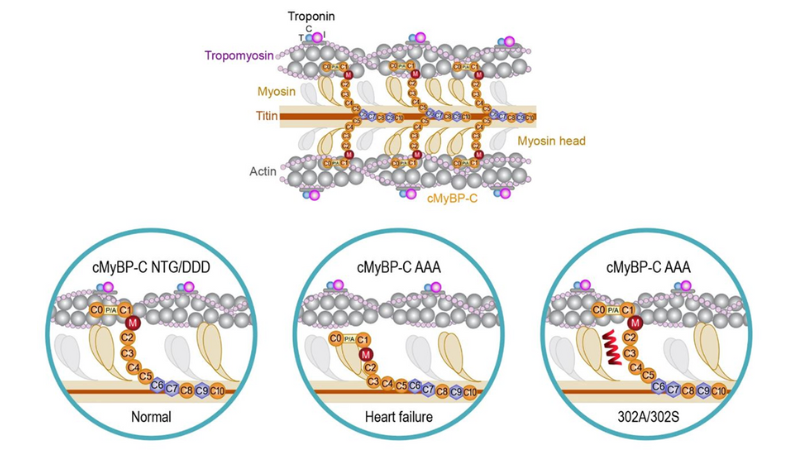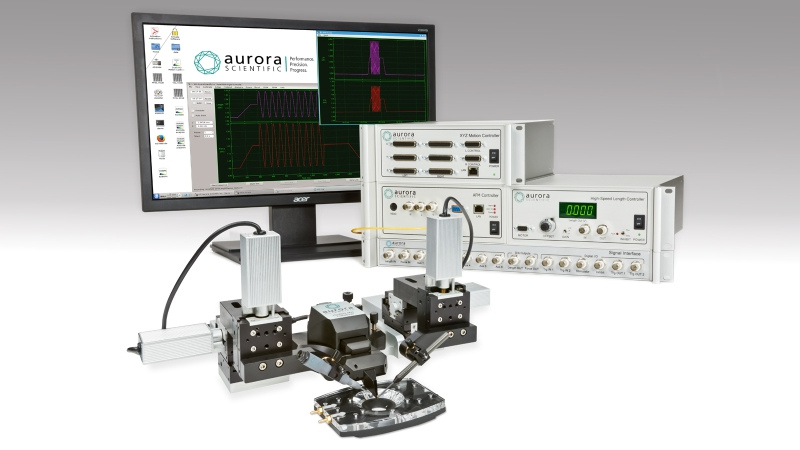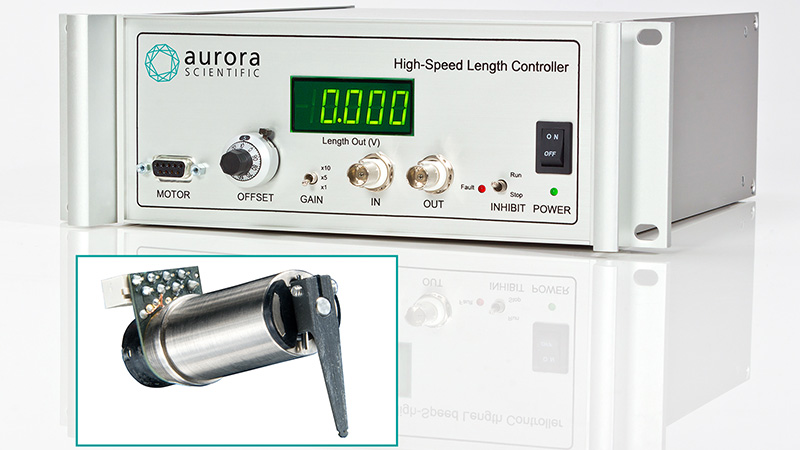Mechanical Control of Relaxation Using Intact Cardiac Trabeculae
Melissa Bukowski and colleagues describe and demonstrate a method to measure mechanical control of relaxation or the strain dependence of muscle relaxation in rodent cardiac ...
Analyzing Cardiac Tissue Function
The following publication review showcases recent studies that use Aurora Scientific equipment to make advances in the field of ...
Excellence, Innovation, and Collaboration: Key Research at the MHRC
This past April, we partnered with InsideScientific and the Muscle Health Research Centre (MHRC) at York University, a one-of-a-kind facility that fosters an interdisciplinary approach to the study ...
Excellence, Innovation, and Collaboration: Student Research at the MHRC
This past April, we partnered with InsideScientific and the Muscle Health Research Centre (MHRC) at York University, a one-of-a-kind facility that fosters an interdisciplinary approach to the study ...
Muscle Function in Diabetes and Heart Failure
This publication review takes a look at muscle function in the context of diabetes and heart failure, and how these mechanistic findings can help develop targeted therapies in the ...
Investigating a Novel Regulator of Atrial Contractility
Dr. David Barefield gives an in-depth discussion on his research investigating the role of the MyBP-HL protein in atrial ...
Cardiac Biophysics
Cardiac biophysics is a necessary component for understanding cardiac disease and dysfunction. This publication review explores recent publications that investigate mechanical and biophysical ...
Best of 2021: Muscle Physiology
This publication review summarizes some of the best recent articles that fall under our Muscle Physiology ...
Using the 1700A Single Myofibril System – Tips and Tricks
The 1700A single myofibril system (sometimes referred to as the ‘Penguin’) is commonly used to investigate the active and passive properties of single ...
How to calibrate an Aurora Scientific High Speed Length Controller using HVSL
Our 315D & 322D models of High-Speed Length Controllers are routinely used by researchers studying small tissue samples such
Impact of syndecan-2-selected mesenchymal stromal cells on the early onset of diabetic cardiomyopathy in diabetic db/db mice
Diabetic cardiomyopathy is characterized by structural and functional alterations to the heart including inflammation, fibrosis, and muscle stiffness. These alterations can ultimately lead to dysfunction in the left ventricle (LV). Bone marrow-derived mesenchymal stromal cells (MSCs) have many potential cardiac-aiding properties with demonstrated pro-angiogenic, anti-fibrotic, and general immunomodulatory effects. This study focuses on characterizing the ability of MSCs to reduce cardiomyopathic alterations in a mouse model for human type 2 diabetes mellitus. Twenty-week old db/db and control mice were administered CD362+, CD362−, and wild type MSCs intravenously. After four weeks, cardiomyocyte passive force (Fpassive) was assessed as a measure of stiffness. Using Aurora’s Permeabilized Myocyte Test System (1600A), it was found that all three MSCs had restorative effect on previously elevated Fpassive in db/db cardiomyocytes, with the effect of CD362+ being the least pronounced. Similarly, all three MSCs reestablished titin phosphorylation-regulating nitric oxide (NO) and cGMP levels to those seen in control mice, with CD362+ having the smallest effect. Arteriole density was then assessed to evaluate the pro-angiogenic properties of MSCs. CD362- and wild type were most effective in increasing arteriole density in db/db mice. Lastly, due to their marked influence on the progression of heart failure, a splenic cell analysis was conducted. Diabetic mice showed higher percentages of splenic apoptotic Tregs, lower amounts anti-inflammatory cells, and increased splenic pro-inflammatory cells. Application of all MSCs resulted in lower percentages of apoptotic Tregs compared to control mice. Treatment with CD362+ and wild type MSCs also resulted in increased anti-inflammatory splenic cells, whereas treatment with CD362- MSCs was most effective at decreasing pro-inflammatory cells. Overall, this study shows that the application of MSCs can reduce cardiomyocyte stiffness, restore NO and cGMP levels, and increase arteriole densities in diabetic mice, although CD362+ MSC were less effective.










